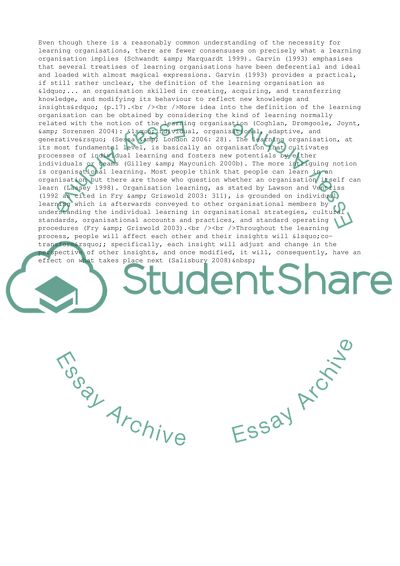Cite this document
(Defining and Characterising a Learning Organisation Essay, n.d.)
Defining and Characterising a Learning Organisation Essay. https://studentshare.org/management/1732236-organisational-learning
Defining and Characterising a Learning Organisation Essay. https://studentshare.org/management/1732236-organisational-learning
(Defining and Characterising a Learning Organisation Essay)
Defining and Characterising a Learning Organisation Essay. https://studentshare.org/management/1732236-organisational-learning.
Defining and Characterising a Learning Organisation Essay. https://studentshare.org/management/1732236-organisational-learning.
“Defining and Characterising a Learning Organisation Essay”. https://studentshare.org/management/1732236-organisational-learning.


